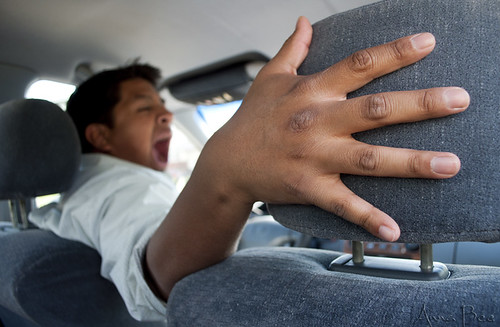It’s no secret! We have all had those days when “I’m so tired” is the only piece of conversation we can contribute. But has being tired ever stopped you from driving your car? Recently, there has been an increase in research showing fatigue to be a major contributing factor in motor vehicle accidents. According to The National Highway Traffic Safety Administration of the USA, there was 4,121 fatal crashes between 2011 and 2015 involving drowsy driving. This has led researchers to explore the idea of establishing methods for discouraging people from driving while in a lethargic state and for catching them in the act.
Drowsy driving can be risky
Image Source: flickr
Photographer: Anna~Bee
Does being drowsy really affect me?
We can all relate to being tired every now and again, whether it is a busy week at work, a heavy class schedule, or even as a result of a sleeping disorder. What we do not always realize is the very real effects that even the smallest lack of sleep can have on our bodies. In fact, research done by the AAA Foundation for Traffic Safety, shows that even just one or two hours of sleep less than the recommended within 24 hours, can double the risk of collision. Some of the effects of drowsiness are, but are not limited to, the following:
- Trouble focusing
- Heightened risk-taking
- Impaired attention
- Changes in mood
Fatal accidents caused by drowsy driving
Image Source: flickr
Photographer: Thomasjuh-b
Wait! How do you know how drowsy I am?
Now, what if I told you that police officers could test your sleep level, as they would alcohol levels, if they saw fit? Would you think twice about getting behind the wheel? This is the end goal for researchers from the Sleep Research Centre at the University of Surrey, who were working towards developing a biomarker capable of assessing an individual’s sleep level. A study was conducted where 36 participants were subjected to a 40-hour period of sleep deprivation. During this time, researchers drew blood from participants in order to observe any changes their lack of sleep would have on the expression levels of their genes. This study resulted in a major breakthrough in the form of an algorithm, which can be used to test blood samples for sleep deprivation with 92 percent accuracy. This breakthrough not only paves the way towards a future with a test capable of checking for sleep-deficient drivers, but also emphasizes the extent of the physiological impact a lack of sleep can have on our bodies, made evident by the fact that these biomarkers are present in the subject’s blood only after a 24-hour period.
Observing driving behaviour of drowsy drivers
Posted By: Mobilegeeks.de
Evidently, lack of sleep can have major influences on our bodies and is a serious contributing factor to fatal car accidents. While researchers are working towards methods to help society enforce regulations on sleep level while driving, we can all do our part by being more aware of our state of well-being before taking the wheel.
Shadi Elmi


